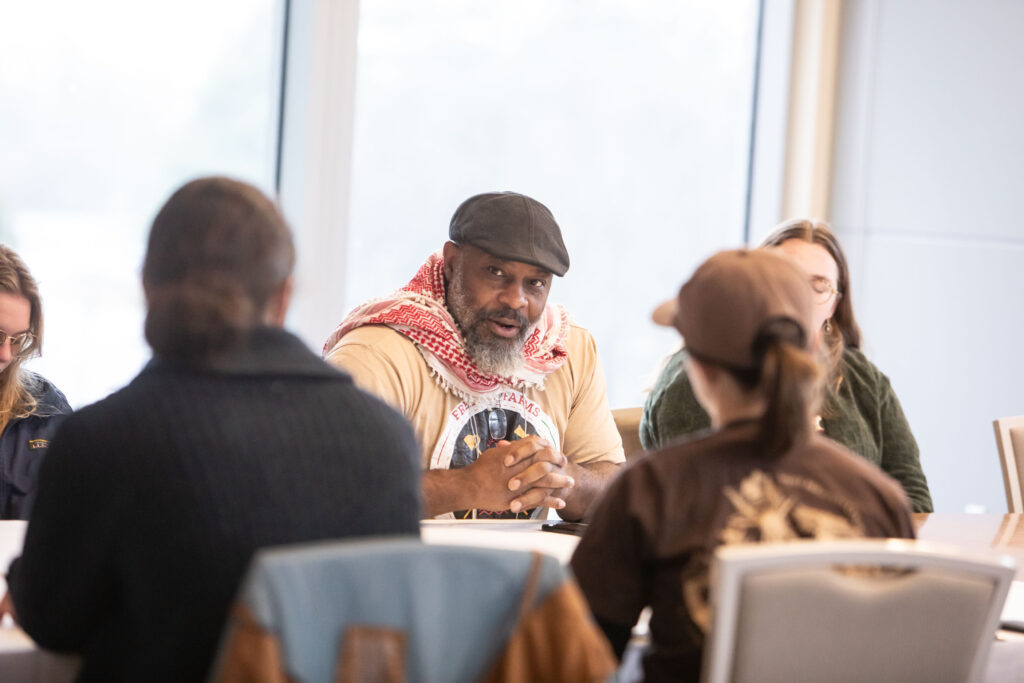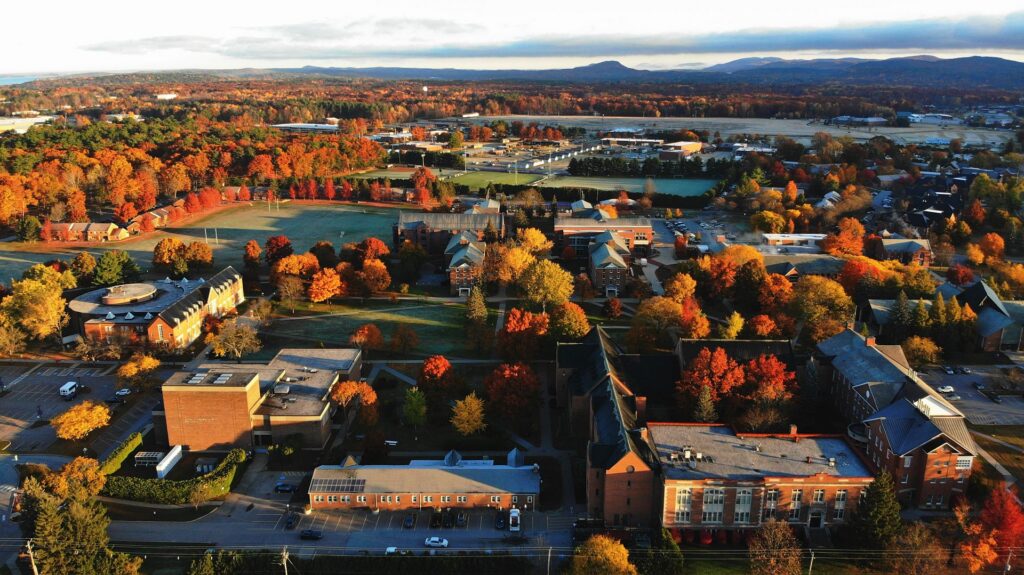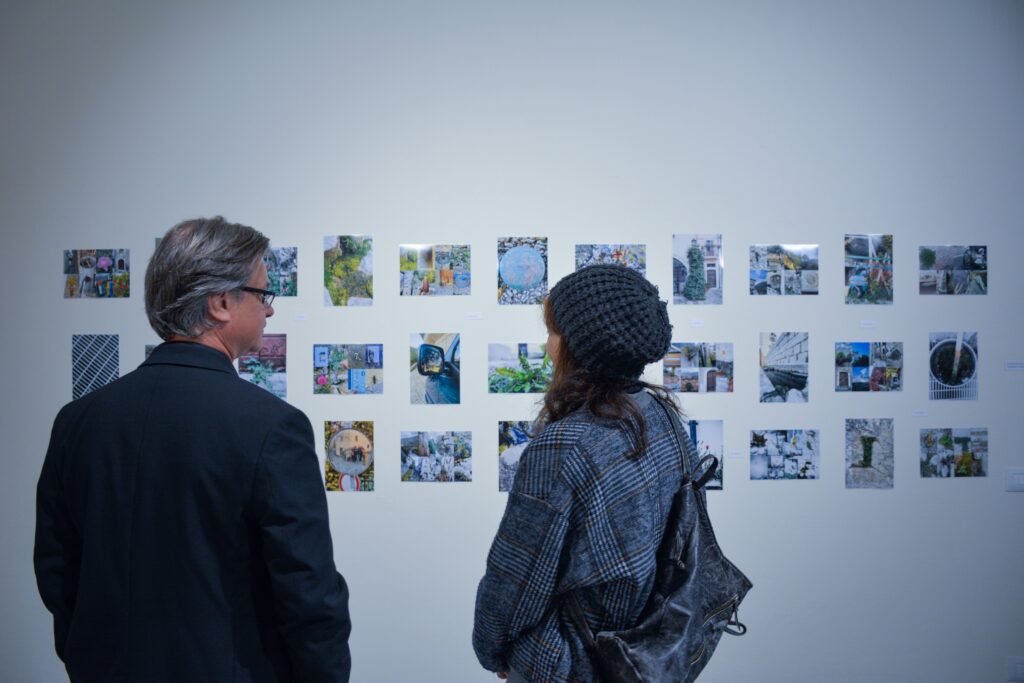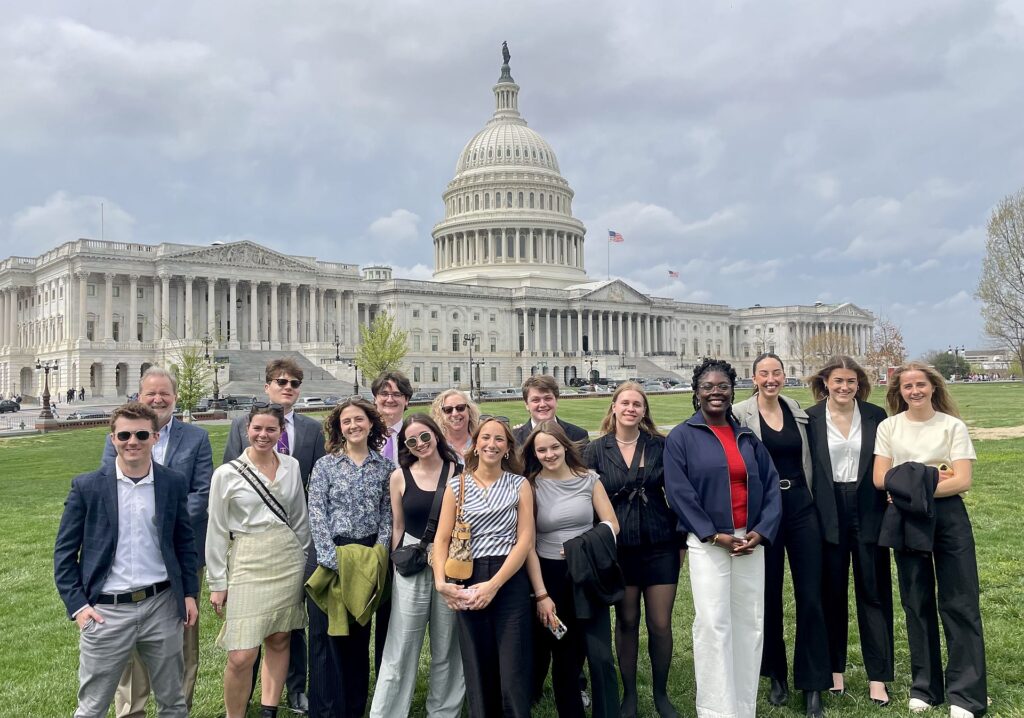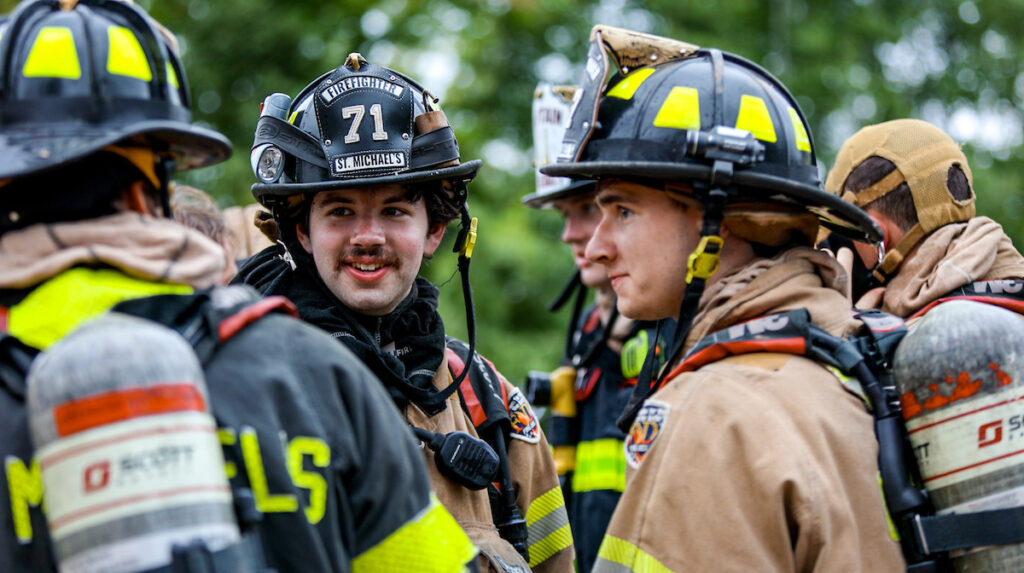Saint Michael’s community members helped envision the role that higher education can play in climate justice and examine other important questions during the inaugural event for the newly named Patrick ’61 and Marcelle Leahy Center for the Environment.
The all-day event called Building Relationships for Climate Justice: A Day of Visioning and Education took place at Saint Michael’s on November 14. Jason Hirsch, Instructor of Sociology and Anthropology, and Kristyn Achilich, Director of the Center, facilitated the four-part day, which brought together thinkers, strategists, and activists.

Kali Akuno speaking during the morning roundtable (Photo by Cat Cutillo)
Guest speakers Kali Akuno and Michelle Eddleman McCormick led the day’s discussions. Akuno is the co-founder and co-director of Cooperation Jackson, a movement for economic democracy to transform Mississippi and the South. McCormick has been an activist for climate change, and social and racial justice for more than 20 years. McCormick currently serves as the General Manager of the worker-owned Marshfield Village Store in rural Vermont. Both Akuno and McCormick founded and co-direct Cooperation Vermont.
The day kicked off with a morning roundtable discussion session that was geared towards students and was followed by a “Breaking Bread” lunch in Alliot. Akuno and McCormick spent the afternoon visiting several classrooms. The final event of the day was a “Climate Justice Community Strategy,” which was open to all Saint Michael’s community members.
During the morning roundtable, Akuno said he’s found it’s easier to motivate smaller colleges towards change from his experience working with different size colleges and universities throughout the South.

Michelle Eddleman McCormick speaking during the morning roundtable (Photo by Cat Cutillo)
McCormick said she wants students to use “that feeling of hopelessness” and transfer it into an ability to “focus some creative energy into something that’s practical, tactical, local and doable.”
Hirsch outlined three questions during the morning roundtable session for people to consider:
- How will we partner with movements and institutions leading the work?
- What futures will we show to our students?
- How will we prepare the students to do this work?
“Students feel empowered in class when they can see a path towards becoming agents,” Hirsch said. “Colleges need to help students be able to do that.”
Hirsch said Akuno made connections between Vermont’s lack of housing and high housing costs, Vermont’s property tax policy and its strategy of marketing Vermont to tourists for second and third home ownership, the climate justice imperative of creating local economies and the need to prepare for climate refugees from the South.
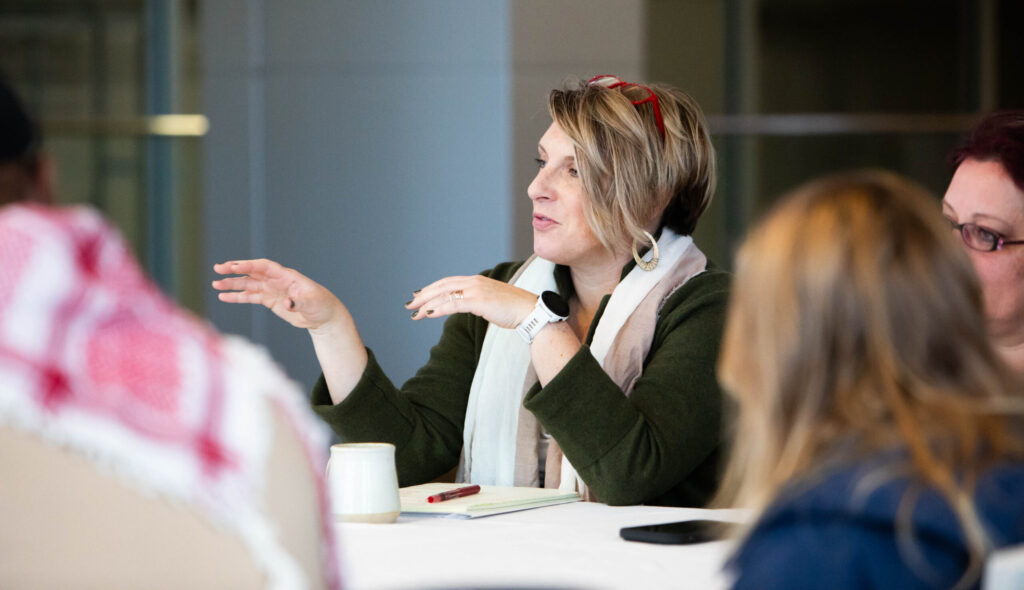
Kristyn Achilich speaking during the morning roundtable. (Photo by Cat Cutillo)
During Akuno and McCormick’s visit to Hirsch’s Intro to Cultural Anthropology class, Akuno connected food sovereignty with taking large-scale public ownership of land and businesses through land trusts and worker co-operatives. In Hirsch’s Climate Crisis class, Akuno and McCormick told stories about the fundamental work of talking to people.
Hirsch said the guests explained that “every kind of social change comes about through building large-scale movements, and large-scale movements are built by organizing ordinary people through common interests.”
“My biggest takeaway was that there is real appetite among our students for connecting the theoretical education of our classrooms with the challenges and demands of our historical moment,” Hirsch said.
Hirsch said these two powerful thinkers helped the college community reflect on ways they can make a real ecological transition in Vermont and at Saint Michael’s College.
“I heard repeatedly from students, faculty, and community members that the day’s events helped them to think bigger, to make connections that they weren’t yet making,” Hirsch said.
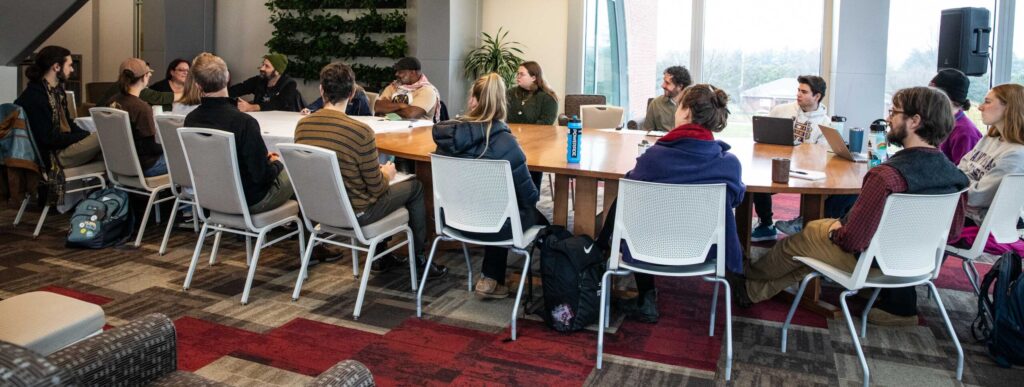
(Photo by Cat Cutillo)
Editor’s note: In the summer of 2024, the Center for the Environment was rebranded to the Institute for the Environment. This story was published before the rebrand and, thus, bears the previous name.

For all press inquiries contact Elizabeth Murray, Associate Director of Communications at Saint Michael's College.
